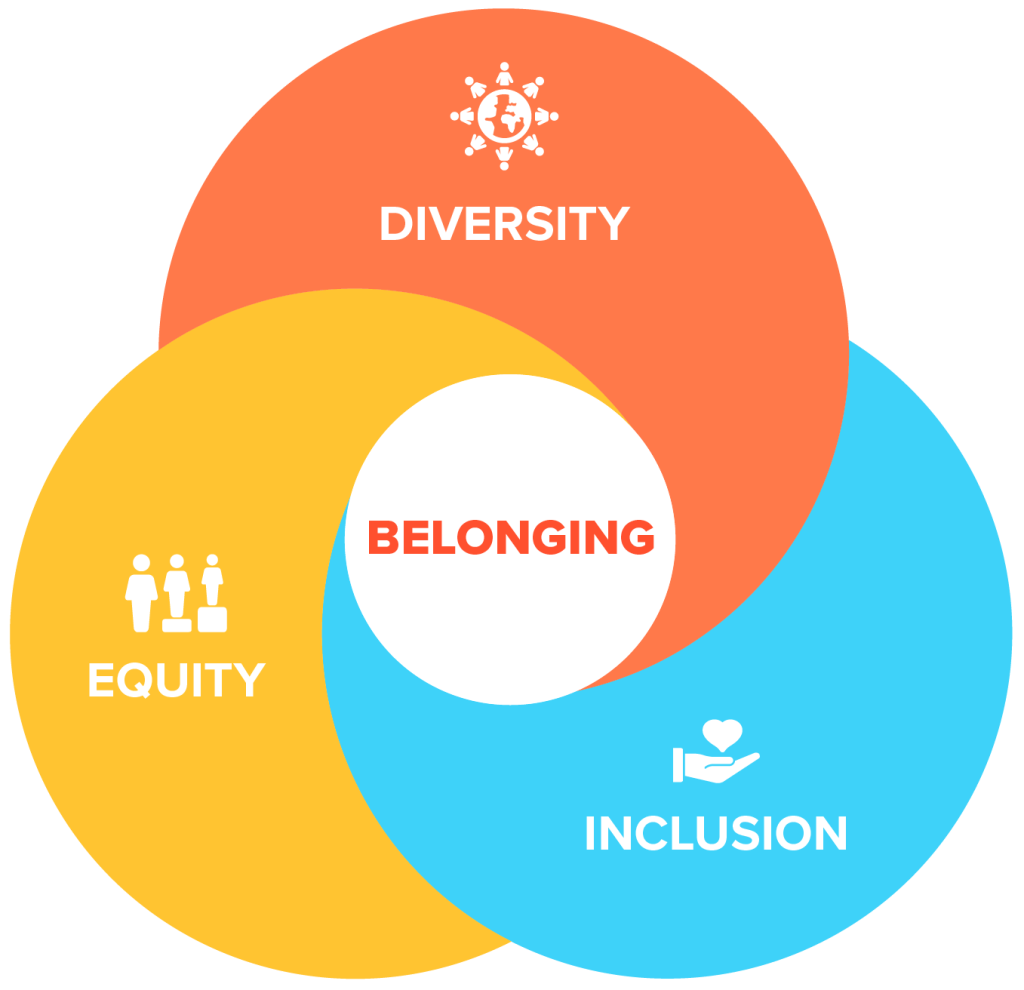DEI in the Workplace: Understanding Diversity, Equity, and Inclusion
Diversity, Equity, and Inclusion (DEI) programs are a growing conversation point in workplaces and educational institutions across the United States. While some see them as essential for fostering fairness and opportunity, others believe they create an unfair advantage or stifle free speech.

What Does DEI Stand For?
- Diversity: Embracing the variety of backgrounds, experiences, and perspectives that employees bring to the table. This includes race, ethnicity, gender, sexual orientation, age, ability, religion, and other social identities.
- Equity: Ensuring everyone has equal opportunities for success, regardless of background. This might involve providing resources or accommodations to level the playing field.
- Inclusion: Creating a work environment where everyone feels valued, respected, and heard. This involves fostering open communication and collaboration.
The History of DEI in America
The roots of DEI can be traced back to the Civil Rights Movement of the 1960s, which aimed to dismantle racial discrimination and create a more equitable society. The Civil Rights Act of 1964 outlawed discrimination in employment based on race, religion, sex, color, and national origin.
The Rise of DEI Programs
In the decades following the Civil Rights Movement, companies began implementing affirmative action programs to increase diversity in hiring practices. However, these programs faced legal challenges, leading to a shift towards broader DEI initiatives.
The murder of George Floyd in 2020 sparked a renewed focus on racial justice and diversity, equity, and inclusion efforts. Many companies invested in DEI training programs, created dedicated DEI roles, and established employee resource groups.
Why is DEI Controversial?
Despite its goals, DEI has become a source of contention for several reasons:
- Concerns about Reverse Racism: Some critics argue that DEI programs give preferential treatment to minority groups, potentially disadvantaging white applicants or employees.
- Focus on Identity Politics: Critics argue that DEI programs emphasize identity over qualifications, leading to a decline in meritocracy.
- Free Speech Concerns: Some fear that DEI initiatives can create a “chilling effect” on free speech, as employees may be hesitant to express certain opinions for fear of being labeled insensitive.
The Benefits of DEI
Proponents of DEI programs highlight several advantages for businesses and institutions:
- Enhanced Creativity and Innovation: Diverse teams bring a wider range of perspectives to the table, leading to more creative solutions and innovative ideas.
- Improved Decision-Making: When diverse voices are heard and considered, decision-making processes become more balanced and effective.
- Stronger Talent Acquisition and Retention: A commitment to DEI can attract and retain top talent from a wider pool of qualified candidates.
- Enhanced Brand Reputation: Companies with strong DEI initiatives can project a more positive and inclusive image to customers and stakeholders.
The Future of DEI
The debate over DEI is likely to continue, with both supporters and critics making their voices heard. Here are some potential future scenarios:
- Refined DEI Practices: Companies may refine their DEI programs to address concerns about fairness and free speech while still achieving diversity goals.
- Legal Challenges: Anti-DEI legislation may be challenged in court, with potential implications for how public institutions can implement DEI initiatives.
- Focus on Business Outcomes: Companies may shift their focus from quotas to measurable outcomes, demonstrating the positive impact of DEI on their bottom line.



